- Home
- Anne McCaffrey
The Ship Who Sang Page 3
The Ship Who Sang Read online
Page 3
Only the iron conditioning of her training prevented Helva from swinging around and plunging back into the cleansing heart of the exploding sun. Numbly she made rendezvous with the refugee convoy. She obediently transferred her burned, heat-prostrated passengers to the assigned transport.
‘I will retain the body of my scout and proceed to the nearest base for burial,’ she informed Central dully.
‘You will be provided escort,’ was the reply.
‘I have no need of escort.’
‘Escort is provided, XH-834,’ she was told curtly. The shock of hearing Jennan’s initial severed from her call number cut off her half-formed protest. Stunned, she waited by the transport until her screens showed the arrival of two other slim brain ships. The cortege proceeded homeward at unfunereal speeds.
‘834? The ship who sings?’
‘I have no more songs.’
‘Your scout was Jennan.’
‘I do not wish to communicate.’
‘I’m 422.’
‘Silvia?’
‘Silvia died a long time ago. I’m 422. Currently MS,’ the ship rejoined curtly. ‘AH-640 is our other friend, but Henry’s not listening in. Just as well – he wouldn’t understand it if you wanted to turn rogue. But I’d stop him if he tried to deter you.’
‘Rogue?’ The term snapped Helva out of her apathy.
‘Sure. You’re young. You’ve got power for years. Skip. Others have done it. 732 went rogue 20 years ago after she lost her scout on a mission to that white dwarf. Hasn’t been seen since.’
‘I never heard about rogues.’
‘As it’s exactly the thing we’re conditioned against, you sure wouldn’t hear about it in school, my dear,’ 422 said.
‘Break conditioning?’ cried Helva, anguished, thinking longingly of the white, white furious hot heart of the sun she had just left.
‘For you I don’t think it would be hard at the moment,’ 422 said quietly, her voice devoid of her earlier cynicism. ‘The stars are out there, winking.’
‘Alone?’ cried Helva from her heart.
‘Alone!’ 422 confirmed bleakly.
Alone with all of space and time. Even the Horsehead Nebula would not be far enough away to daunt her. Alone with a hundred years to live with her memories and nothing . . . nothing more.
‘Was Parsaea worth it?’ she asked 422 softly.
‘Parsaea?’ 422 repeated, surprised. ‘With his father? Yes. We were there, at Parsaea when we were needed. Just as you . . . and his son . . . were at Chloe. When you were needed. The crime is not knowing where need is and not being there.’
‘But I need him. Who will supply my need?’ said Helva bitterly . . .
‘834,’ said 422 after a day’s silent speeding, ‘Central wishes your report. A replacement awaits your opt at Regulus Base. Change course accordingly.’
‘A replacement?’ That was certainly not what she needed . . . a reminder inadequately filling the void Jennan left. Why, her hull was barely cool of Chloe’s heat. Atavistically, Helva wanted time to mourn Jennan.
‘Oh, none of them are impossible, if you’re a good ship,’ 422 remarked philosophically: ‘And it is just what you need. The sooner the better.’
‘You told them I wouldn’t go rogue, didn’t you?’ Helva said.
‘The moment passed you even as it passed me after Parsaea, and before that, after Glen Arthur, and Betelgeuse.’
‘We’re conditioned to go on, aren’t we? We can’t go rogue. You were testing.’
‘Had to. Orders. Not even Psych knows why a rogue occurs. Central’s very worried, and so, daughter, are your sister ships. I asked to be your escort. I . . . don’t want to lose you both.’
In her emotional nadir, Helva could feel a flood of gratitude for Silvia’s rough sympathy.
‘We’ve all known this grief, Helva. It’s no consolation, but if we couldn’t feel with our scouts, we’d only be machines wired for sound.’
Helva looked at Jennan’s still form stretched before her in its shroud and heard the echo of his rich voice in the quiet cabin.
‘Silvia! I couldn’t help him,’ she cried from her soul.
‘Yes, dear, I know,’ 422 murmured gently and then was quiet.
The three ships sped on, wordless, to the great Central Worlds’ base at Regulus. Helva broke silence to acknowledge landing instructions and the officially tendered regrets.
The three ships set down simultaneously at the wooded edge where Regulus’ gigantic blue trees stood sentinel over the sleeping dead in the small Service cemetery. The entire Base complement approached with measured step and formed an aisle from Helva to the burial ground. The honor detail, out of step, walked slowly into her cabin. Reverently they placed the body of her dead love on the wheeled bier, covered it honorably with the deep blue, star-splashed flag of the Service. She watched as it was driven slowly down the living aisle which closed in behind the bier in last escort.
Then, as the simple words of interment were spoken, as the atmosphere planes dipped in tribute over the open grave, Helva found her voice for her lonely farewell.
Softly, barely audible at first, the strains of the ancient song of evening and requiem swelled to the final poignant measure until black space itself echoed back the sound of the song the ship sang.
The Ship Who Mourned
WITH EYES THAT did not register what they saw, Helva watched stolidly as the Regulus Base personnel broke ranks at the conclusion of Jennan’s funeral. Never again, she vowed, would she be known as the ship who sang. That part of her had died with Jennan.
From somewhere very far away from her emotional centers, she impassively watched the little figures separate, pair off, walking rapidly to continue interrupted tasks or moving slowly back to the barracks. Some, passing, looked up, but she did not interpret their glances. She had nowhere to move to and no desire to move anywhere away from the graveside of her dead partner.
‘It cannot end like this,’ she thought, anguish overpowering the stupor in her heart. ‘I cannot be like this. But what do I go on to now?’
‘XH-834, Theoda of Medea requests permission to enter,’ said a voice at the base of her lift.
‘Permission granted,’ Helva said automatically.
So absorbed in her grief was Helva that by the time the lift had deposited the slender female figure at the lock, Helva had forgotten she had permitted entry. The woman advanced toward the central shaft behind which Helva was embedded in her shell. In her hand she held out a command reel.
‘Well, insert it,’ snapped Helva when the woman made no other move.
‘Where? I’m not regular service. The tape explains the mission but . . .’
‘In the northwest quadrant of the central panel, you will observe a blue slot; insert the tape with the wind tab in position nearest the center red knob of the panel. Press the blue button marked “relay” and if you are unaware of the text and are cleared for it, press the second yellow button marked “audio.” Please be seated.’
Dispassionately and with no more than a fleeting awareness that she ought to have put Theoda at her ease or made some attempt at graciousness, Helva watched the woman fumble before she was able to insert the tape. Theoda sank uncertainly into the pilot’s chair as the tape began.
‘XH-834, you will proceed in the company of Physiotherapist Theoda of Medea to the NDE, System Lyrae II, Annigoni IV, and present all aid possible in rehabilitation program of Van Gogh space plague survivors. All haste. All haste. All haste!’
Helva slammed the stop signal on the tape and called Central Control.
‘Does Physiotherapist Theoda constitute my replacement?’
‘No, XH-834, Theoda is not in Service. Your replacement is delayed in transit. Proceed in all haste, repeat, in all haste, to Annigoni.’
‘Request permission for immediate lift.’
Established routine procedures took Helva through take-off before she consciously realized what she was doing. Leaving Regulus was th
e last thing she wanted to do, but she had her order-tape and she had heard the imperative ‘all haste’ repeated.
‘All areas clear for lifting. Proceed. And XH-834 . . . ?’
‘Yes?’
‘Good luck.’
‘Acknowledged,’ said Helva, ignoring the softened, unofficial farewell. To Theoda, she explained briefly how to strap herself into the pilot chair, following the woman’s nervous fingers as they stumbled over the fastenings. Finally assured Theoda would be secure during acceleration, Helva lifted, her rear screen picking up the base cemetery as long as vision permitted.
It no longer made any difference to Helva what speed she attained, but when she found herself increasing acceleration in an unconscious desire to finish her mission quickly and return to Regulus Base – and Jennan – she sternly measured her rate against Theoda’s tolerance. Journey speed achieved, she told Theoda she could leave the chair.
Theoda unsnapped the harness and stood uncertainly.
‘I was sent here so quickly and I’ve traveled 24 hours already,’ she said, looking down at her rumpled, dirty uniform.
‘Quarters are aft the central column,’ and Helva gasped inwardly as she realized Theoda would inhabit the place so recently vacated by Jennan. Instinctively she glanced in the cabin. Someone had already removed Jennan’s personal effects. Not one memento remained of his tenancy, no souvenir of their brief happiness. Her feeling of desolation deepened. How could they? When had they? It was unfair. And now she must endure this fumbling female.
Theoda had already entered the cabin, throwing her kit bag on the bunk and entering the head. Helva politely withdrew her vision. She tried to make believe the homey noises of showering were Jennan’s but her new passenger’s ways were completely different.
The difference, oh, the difference to me, cried Helva, mourning.
Lost in an elegy, she became only gradually aware of the quiet in the ship and, scanning discreetly, saw Theoda stretched out on her back in the limp, deep slumber of the exhausted. In repose, the woman was older than Helva had initially assumed. Now, too, Helva justly attributed the ineptitude and fumbling to the true cause, exhaustion. The face was deeply lined with sorrow as well as fatigue; there were dark smudges under the closed eyes. The mouth was dragged down at the corners from familiarity with pain. The long, blunt-ended fingers twitched slightly in reflex to a disturbing dream and Helva could see the inherent strength and sensitivity, the marks of use in odd scars on palm and fingers, unusual in an age where manual work was mainly confined to punching buttons.
Jennan had used his hands, too, came the unbidden comparison. Mourning reclaimed Helva.
‘How long did I sleep?’ Theoda’s voice broke into Helva’s reminiscences as the woman wove sleepily into the forward cabin. ‘How much longer is the trip?’
‘You slept 18 hours. The tape estimates an elapse of 49 hours galactic to Annigoni orbit.’
‘Oh is there a galley?’
‘First compartment on the right.’
‘Umm, is there anything you require?’ Theoda asked, halfway to the galley.
‘My needs are supplied for the next hundred years,’ Helva said coldly, realizing as the words were formed that her critical need could not be met.
‘I’m sorry. I know very little of your ships,’ Theoda apologized. ‘I’ve never had preferential treatment like this before,’ and she smiled shyly.
‘Your home planet is Medea?’ inquired Helva with reluctant courtesy. It was not uncommon for a professional person to claim the planet of his current employer.
‘Yes, Medea,’ Theoda replied. She made immediate noise with the rations she held, banging them onto the table with unnecessary violence. Her reaction suggested some inner conflict or grief, but Helva could recall nothing of great moment connected with Medea, so she must assume Theoda’s problem was personal.
‘I’ve seen your type of ship before, of course. We of Medea have reason to be grateful to you but I’ve never actually been in one.’ Theoda was talking nervously, her eyes restlessly searching over the supplies in the galley cupboards, rearranging containers to see the back of the shelves. ‘Do you enjoy your work? It must be a tremendous satisfaction.’
Such innocent words to drop like hot cinders on Helva’s unhealed grief. Rapidly Helva began to talk, anything to keep herself from being subjected to another such unpredictably rasping civility.
‘I haven’t been commissioned long,’ she said. ‘As a physiotherapist you must certainly be aware of our origin.’
‘Oh, yes, of course. Birth defect,’ and Theoda looked embarrassed as if she had touched on a vulgar subject. ‘I still think it’s horrible. You had no choice,’ she blurted out, angrily.
Helva felt suddenly superior. ‘Initially, perhaps not. But now, it would be very difficult to give up hurtling through space and be content with walking.’
Theoda flushed at the almost scornful emphasis of the final word.
‘I leave that to whoever is my brawn,’ and Helva inwardly cringed as she reminded herself of Jennan.
‘I’ve recently heard about one of your ships who sings,’ said Theoda.
‘Yes, I have, too,’ said Helva unencouragingly. Must everything remind her of Jennan’s loss!
‘How long do you live?’
‘As long as we wish.’
‘That is . . . I mean, who’s the oldest ship?’
‘One of the 200s is still in active service.’
‘You’re not very old then, are you, being an 800?’
‘No.’
‘I am,’ said Theoda, staring at the empty ration unit she held in one hand. ‘I am near my end now, I think.’ And there was no regret in her voice, not even resignation.
It occurred to Helva that here, too, was someone with deep sorrow, marking time.
‘How many more hours until planetfall?’
‘47.’
‘I must study,’ and abruptly Theoda rummaged in her kit for filmfile and viewer.
‘What is the problem?’ Helva asked.
‘Van Gogh in Lyrae II was hit by a space plague similar in manifestation to that which attacked Medea 125 years ago,’ Theoda explained.
Suddenly Helva knew why Theoda had seen.Service ships. She microscoped her vision on Theoda’s face and saw the myriad tiny lines that indicated advanced age. Theoda had undoubtedly been alive on Medea at the time of their plague. Helva recalled that the plague had struck a heavily populated area and swept with terrific violence throughout the entire planet in a matter of days – its onslaught so fierce and its toll so great that medical personnel often collapsed over the sick they tended. Others inexplicably survived untouched. The airborne disease spores struck animal as well as human, and then, as suddenly as it had come, almost as if the disease were aware that the resources of a galaxy were on the way to subdue its ravages, it disappeared. Medea had been decimated in the course of a week and the survivors, both the ones hardy enough to endure the intense fever and pain, and those who were curiously immune, spent their years trying to discover source or cause, cure or vaccine.
From her capacious trained associative recall, Helva found seven other different but similarly inexplicable plague waves, some treated with better success than Medea’s. The worst one to be recorded had hit the planet Clematis, eliminating 93 per cent of all human life before help arrived. Clematis had been placed under eternal quarantine. Helva thought that was rather locking the barn and never bothering to track down the missing horses.
‘You had, I gather, sufficient experience with Medea’s plague so that your presence may be of help to Van Gogh’s people?’
‘That is the thought,’ said Theoda, wincing. She picked up her filmviewer purposefully and Helva realized that more discussion was out of order. She knew, too, that Theoda had painful word associations even at the end of a long life. Helva could not imagine a time centuries hence when mention of Jennan would not hurt.
Annigoni swam into view precisely as the trip chronometer
edged on to 67 hours, and Helva found herself immediately answering a quarantine warning from an orbital monitor.
‘You have Physiotherapist Theoda on board, do you not?’ Helva was asked after she identified herself.
‘I do.’
‘Your landing should set you down as close to the hospital city of Erfar as possible. There is, however, no space field in that vicinity and a meadow has been set aside for your use. Are you able to control your dangerous exhausts?’
Helva wryly assured them of her ability to land circumspectly. They gave her the latitude and longitude and she had no difficulty in bringing herself to a stand in the patch-sized meadow so indicated. A powdery white road led to a long white complex of multiwindowed buildings, half a kilometer away. From the complex came a land vehicle.
‘Theoda,’ said Helva as they awaited the arrival of the land-car, ‘in the effects compartment under the control panel, you will find a small gray button. With it attached to your uniform, you can maintain communication with me. If you would be good enough to rotate the upper section of the button clockwise, I can have two-way contact. It would afford me some satisfaction to be in on the problems you encounter.’
‘Yes, certainly, of course.’
‘If you rotate the bottom half of the button, I have limited scope vision as well.’
‘How clever,’ murmured Theoda, examining the button before attaching it to her tunic.
As the car drew to a halt, Theoda waved at the occupants from the high lock and stepped onto the lift.
‘Oh, Helva, thank you for the journey. And my apologies. I’m not good company.’
‘Nor have I been. Good luck.’
As Theoda descended, Helva knew that for a lie. They had been perfect company, each locked in separate miseries. Somehow it had escaped her that grief was a frequent visitor in the universe, that her inability to aid Jennan was scarcely unique. Her sister ships had all had such experiences and were still at their jobs.
‘None of them ever loved their brawns as I did Jennan,’ she soliloquized sullenly, perfectly conscious of how ill her sentiment befitted her steel, yet unable to extricate her thoughts from their unconscious return to misery.

 The Renegades of Pern (dragon riders of pern)
The Renegades of Pern (dragon riders of pern)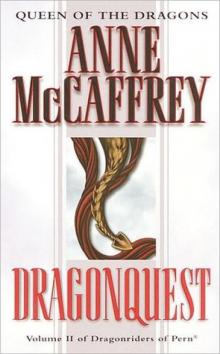 Dragonquest
Dragonquest Moreta (Dragonlady of Pern)
Moreta (Dragonlady of Pern)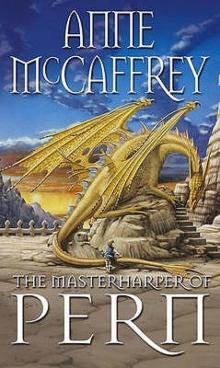 The Masterharper of Pern
The Masterharper of Pern If Wishes Were Horses
If Wishes Were Horses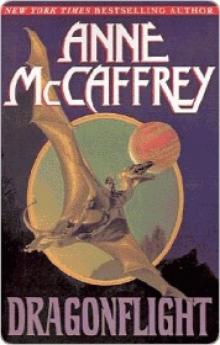 Dragonflight
Dragonflight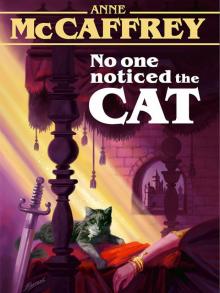 No One Noticed the Cat
No One Noticed the Cat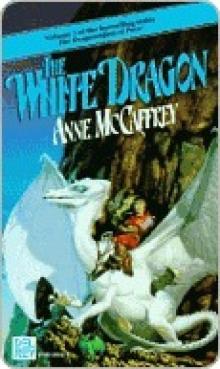 The White Dragon
The White Dragon A Gift of Dragons
A Gift of Dragons Harper Hall - Dragonsong
Harper Hall - Dragonsong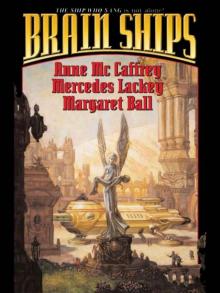 Brain Ships
Brain Ships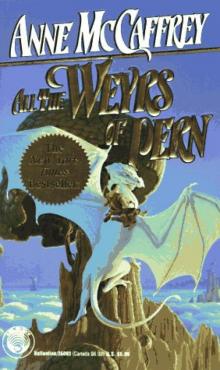 All The Weyrs of Pern
All The Weyrs of Pern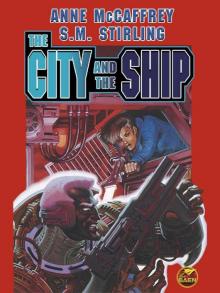 The City and the Ship
The City and the Ship The Chronicles of Pern: First Fall
The Chronicles of Pern: First Fall Acorna’s Search
Acorna’s Search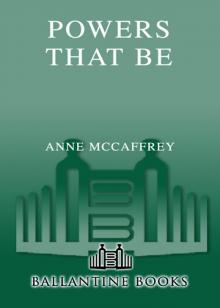 Powers That Be
Powers That Be Second Wave
Second Wave Chronicles of Pern (First Fall)
Chronicles of Pern (First Fall) The Kilternan Legacy
The Kilternan Legacy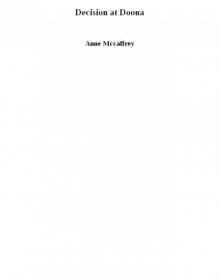 Decision at Doona
Decision at Doona Dragondrums (dragon riders of pern)
Dragondrums (dragon riders of pern)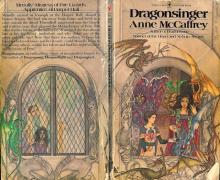 Dragonsinger (dragon riders of pern)
Dragonsinger (dragon riders of pern) The Master Harper of Pern
The Master Harper of Pern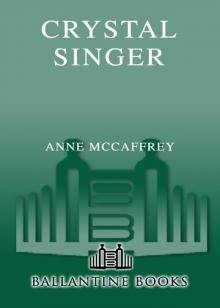 Crystal Singer
Crystal Singer Acorna’s People
Acorna’s People Pegasus in Flight
Pegasus in Flight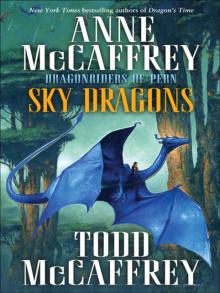 Sky Dragons Dragonriders of Pern
Sky Dragons Dragonriders of Pern Dragonriders of Pern 4 - Dragonsinger
Dragonriders of Pern 4 - Dragonsinger Treaty at Doona
Treaty at Doona Damia's Children
Damia's Children Stitch In Snow
Stitch In Snow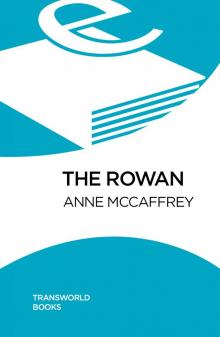 The Rowan
The Rowan Dinosaur Planet
Dinosaur Planet The Year of the Lucy
The Year of the Lucy The White Dragon p-4
The White Dragon p-4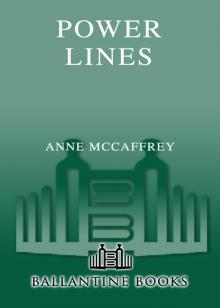 Power Lines
Power Lines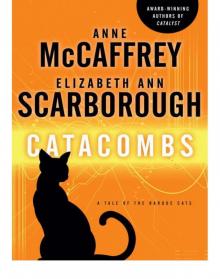 Catacombs
Catacombs Moreta
Moreta Dragonsinger
Dragonsinger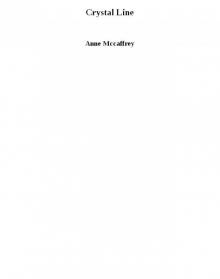 Crystal Line
Crystal Line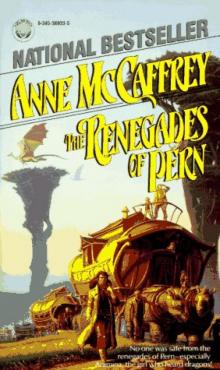 The Renegades of Pern
The Renegades of Pern Moreta - Dragonlady of Pern p-8
Moreta - Dragonlady of Pern p-8 Deluge
Deluge The Skies of Pern
The Skies of Pern Acorna's Quest
Acorna's Quest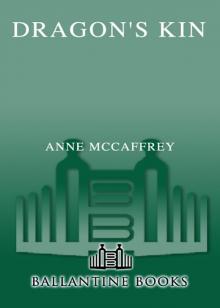 Dragon's Kin
Dragon's Kin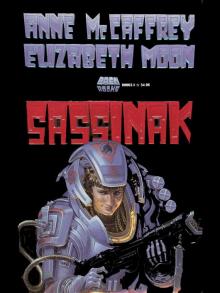 Sassinak
Sassinak![Crystal Universe - [Crystal Singer 03] - Crystal Line Read online](http://i1.bookreadfree.com/i1/03/31/crystal_universe_-_crystal_singer_03_-_crystal_line_preview.jpg) Crystal Universe - [Crystal Singer 03] - Crystal Line
Crystal Universe - [Crystal Singer 03] - Crystal Line Freedom's Landing
Freedom's Landing Acorna’s Quest
Acorna’s Quest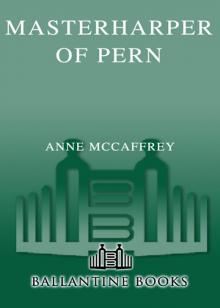 Masterharper of Pern
Masterharper of Pern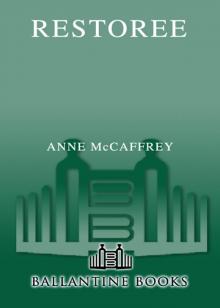 Restoree
Restoree Dolphins of Pern
Dolphins of Pern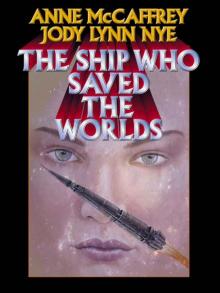 The Ship Who Saved the Worlds
The Ship Who Saved the Worlds Acorna's Triumph
Acorna's Triumph Acorna's Rebels
Acorna's Rebels![[Acorna 08] - First Warning: Acorna's Children (with Elizabeth Ann Scarborough) Read online](http://i1.bookreadfree.com/i1/04/06/acorna_08_-_first_warning_acornas_children_with_elizabeth_ann_scarborough_preview.jpg) [Acorna 08] - First Warning: Acorna's Children (with Elizabeth Ann Scarborough)
[Acorna 08] - First Warning: Acorna's Children (with Elizabeth Ann Scarborough)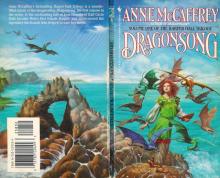 Dragonsong (dragon riders of pern)
Dragonsong (dragon riders of pern) Dragonriders of Pern 6 - Dragondrums
Dragonriders of Pern 6 - Dragondrums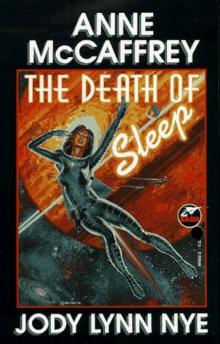 The Death of Sleep
The Death of Sleep Crisis On Doona
Crisis On Doona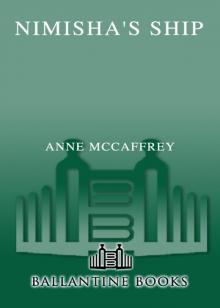 Nimisha's Ship
Nimisha's Ship Black Horses for the King
Black Horses for the King Changelings
Changelings Freedom's Choice
Freedom's Choice The Lady
The Lady The Coelura
The Coelura Catalyst
Catalyst The Unicorn Girl
The Unicorn Girl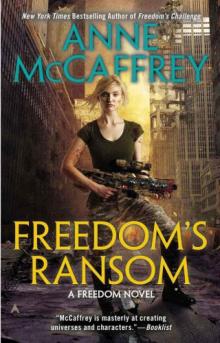 Freedom's Ransom
Freedom's Ransom Nerilka's Story
Nerilka's Story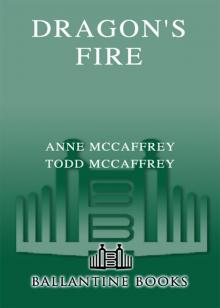 Dragon's Fire
Dragon's Fire Generation Warriors
Generation Warriors Lyon's Pride
Lyon's Pride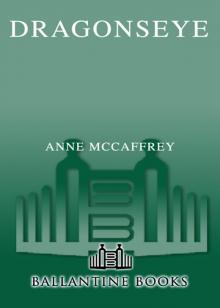 Dragonseye
Dragonseye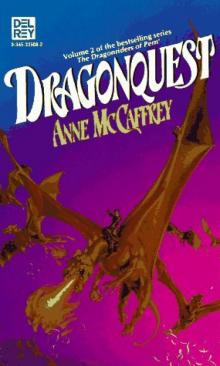 Dragon Quest
Dragon Quest Dragondrums
Dragondrums Dragonsong
Dragonsong The Mystery of Ireta
The Mystery of Ireta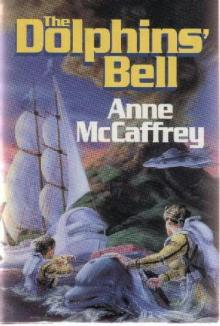 Dolphins' Bell
Dolphins' Bell To Ride Pegasus
To Ride Pegasus Power Play
Power Play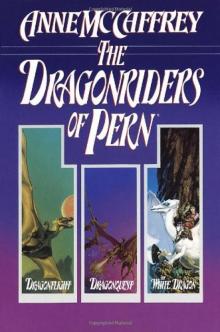 The Dragonriders of Pern
The Dragonriders of Pern An Exchange of Gifts
An Exchange of Gifts The Ship Who Sang
The Ship Who Sang Sky Dragons: Dragonriders of Pern
Sky Dragons: Dragonriders of Pern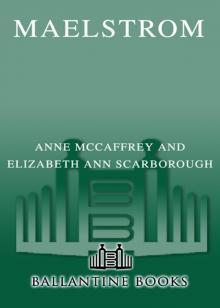 Maelstrom
Maelstrom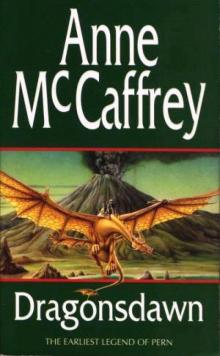 Dragons Dawn
Dragons Dawn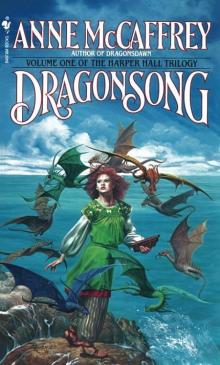 Dragon Song
Dragon Song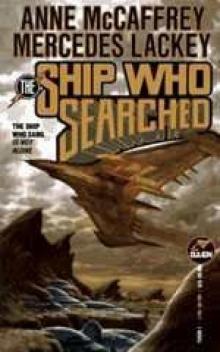 The Ship Who Searched b-3
The Ship Who Searched b-3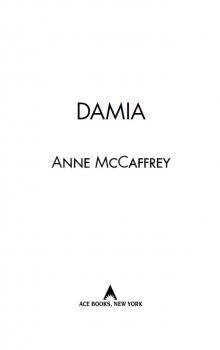 Damia
Damia Freedom's Challenge
Freedom's Challenge